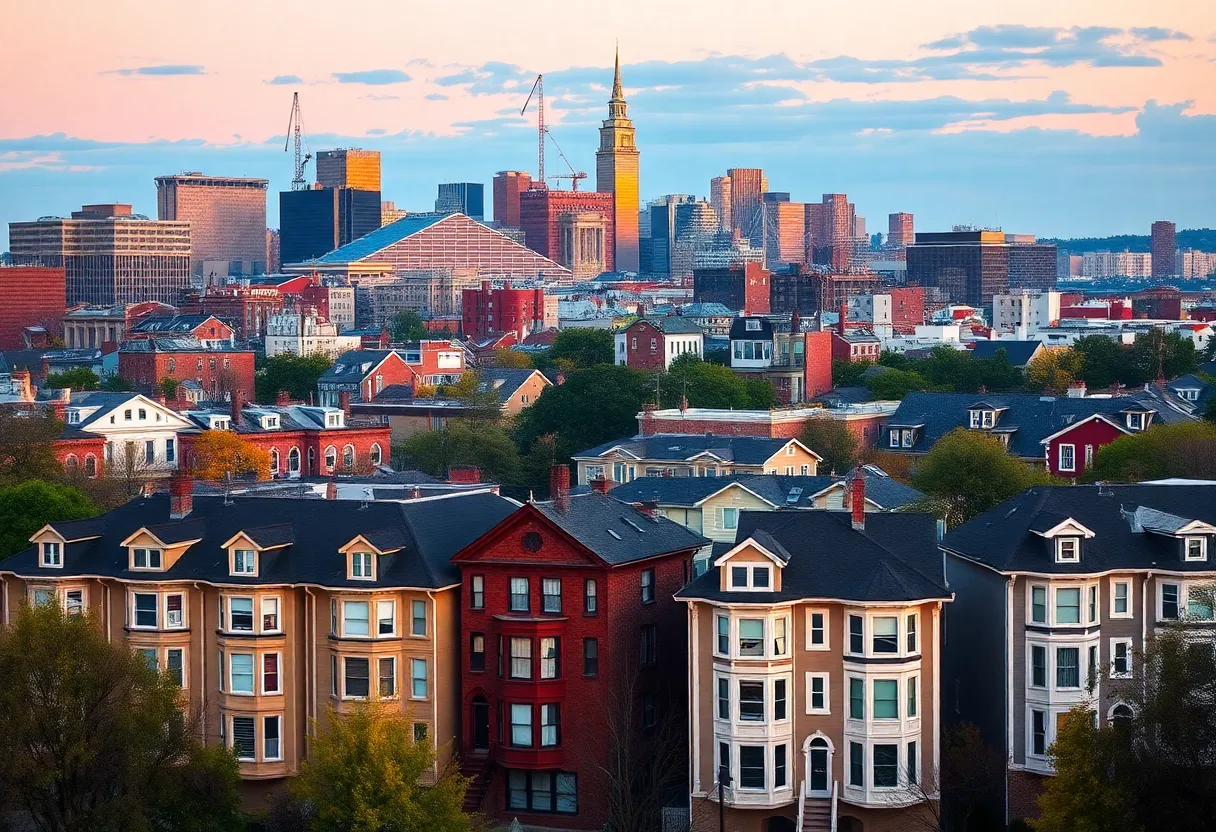News Summary
Boston is facing a housing crisis, characterized by a growing disparity between wealthy and low-income residents, as highlighted during the mayoral race. A decline in middle-income households and skyrocketing home values reflect the city’s challenges, prompting differing approaches from Mayor Michelle Wu and challenger Josh Kraft. While Wu advocates for affordable housing mandates, Kraft pushes for relaxed development regulations to increase housing stock for all residents. Advocacy groups are working to support those affected by rising rents and potential displacement, further underscoring the urgency of the issue.
Boston is facing a critical housing crisis as disparities between wealthy and low-income residents deepen, a situation that has garnered attention during the ongoing mayoral race. The dilemma arises from persistent high demand for residence and employment in the city, leading to mounting challenges for a growing number of low-income households.
Recent demographic data reveals that while both low- and high-income households in Boston have surged, the middle-income bracket has shrunk by 15,000 from 1990 to 2018. This alarming trend underscores the widening gap that the city grapples with. The average home value in Boston has skyrocketed from $500,000 in 2018 to approximately $804,000 today, necessitating an income of $320,000 for a couple with two children to maintain a comfortable living standard. This figure ranks among the highest in the nation, highlighting the increasing unaffordability of housing in the city.
Under the leadership of Mayor Michelle Wu, housing production in 2023 and 2024 marked the lowest output since 2011. Contributing factors include stringent development guidelines and challenging economic conditions. Wu’s administration emphasizes more inclusive housing policies, requiring developers to allocate 17 to 20% of units in new residential projects as affordable housing, an increase from a previous 13% mandate. However, critics, including mayoral challenger Josh Kraft, argue that such requirements deter construction and render many projects financially unfeasible.
Kraft advocates for relaxing development constraints to stimulate housing construction, pointing to a need for increased housing stock to serve all residents. He argues that the current policies hinder development and prevent adequate responses to housing demands. Wu counters this position by linking the construction slowdown to national trends driven by high interest rates and tariffs on construction materials. Wu stands firm in her commitment to prioritize affordability over developer profitability, pushing back against suggestions that market dynamics alone would make housing more accessible over time.
Efforts to address the crisis have included the establishment of various initiatives, such as the $110 million Housing Accelerator Fund and the introduction of Accessory Dwelling Units (ADUs). Applications for ADUs have witnessed a notable surge following the issuance of a city guidebook; however, only 31 units were permitted in 2022. This reflects the cautious pace at which the city is adapting its housing strategies amidst changing economic conditions.
Competing interests are evident as high-demand areas in Boston face increased competition from college students seeking off-campus housing, adversely impacting long-term residents. This growing demand exacerbates challenges for families and individuals already struggling with rising rents, often resulting in displacement and instability, particularly among communities of color.
Grassroots organizations, like City Life / Vida Urbana, are actively intervening to assist long-term residents facing rent hikes and potential eviction, striving to safeguard the rights of those affected by the crisis. Wu and Kraft’s recent candidate forum further illustrated key differences in their approaches to the housing crisis—discussing topics such as inclusionary zoning laws and the potential implementation of luxury real estate taxes.
As the mayoral race progresses, a comprehensive dialogue about how to adapt housing policies in light of economic shifts appears increasingly vital. The stakes are high for Boston residents, and the resolution of the housing crisis could significantly impact the city’s social fabric and economic viability.
Deeper Dive: News & Info About This Topic
HERE Resources
Michelle Wu Leads Josh Kraft in Boston Mayor Race
Roxbury Man Accused in Brutal Home Invasion of Elderly Friend
Boston Hosts Agents’ Choice Awards for Real Estate Excellence
Michelle Wu Maintains Strong Lead in Boston Mayoral Race
Boston Suburbs Among Wealthiest in America
Greater Boston Housing Market Surpasses $1 Million Median Price
Massachusetts Legislature Targets Rental Market with New Reforms
Greater Boston’s Housing Market Surpasses $1 Million Median Price
Boston Launches Largest Office-to-Residential Conversion Project
Greater Boston’s Median Home Price Exceeds $1 Million
Additional Resources
- Boston Globe: Opinion on Boston’s Housing Crisis
- NBC Boston: Investigating College Housing Impact
- Harvard Magazine: Housing Affordability Crisis in Boston
- BC Heights: Plans to Combat Boston’s Housing Crisis
- CBS News: Accessory Dwelling Units in Massachusetts
- Wikipedia: Housing in the United States
- Google Search: Boston Housing Crisis
- Google Scholar: Boston Housing Affordability
- Encyclopedia Britannica: Housing
- Google News: Boston Housing News

Author: STAFF HERE BOSTON WRITER
The BOSTON STAFF WRITER represents the experienced team at HEREBoston.com, your go-to source for actionable local news and information in Boston, Suffolk County, and beyond. Specializing in "news you can use," we cover essential topics like product reviews for personal and business needs, local business directories, politics, real estate trends, neighborhood insights, and state news affecting the area—with deep expertise drawn from years of dedicated reporting and strong community input, including local press releases and business updates. We deliver top reporting on high-value events such as Boston Marathon, Head of the Charles Regatta, and Boston Harborfest. Our coverage extends to key organizations like the Greater Boston Chamber of Commerce and Associated Industries of Massachusetts, plus leading businesses in finance, biotech, and insurance that power the local economy such as Fidelity Investments, Biogen, and Liberty Mutual Insurance. As part of the broader HERE network, we provide comprehensive, credible insights into Massachusetts's dynamic landscape.





